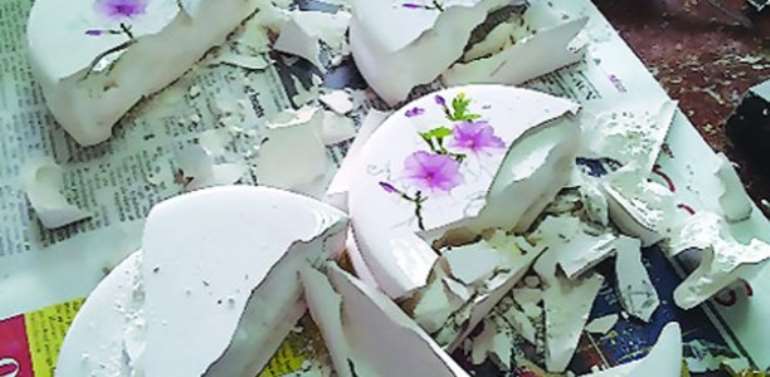Nigeria's loss to fake drug imports - The Sun

The recent disclosure by a notable lecturer, Prof. Tanimola Akande, that Nigeria loses N81 billion annually to importation of fake and counterfeit drugs, especially from Asian countries, is worrisome. The don, who is a professor of Epidemiology and Community Health at the University of Ilorin, Kwara State, had at his delivery of the 142nd inaugural lecture of the university entitled 'Population with Ill-health Burden: Faced with a Sick Health System', decried the increasing menace of unwholesome drugs in our national health systems. He, however, observed that the Nation-al Health Bill has enough provisions to deal with what he called 'Nigeria's ill health system.
'What the eminent scholar has said is a true reflection of the situation in the country. His view is not different from those earlier expressed by the National Agency for Food and Drug Administration and Control (NAFDAC) on the same issue. Available statistics shows that over N20 billion worth of counterfeit drugs and other substandard products had been destroyed by NAFDAC since 2009. Globally, the fake drug trade is said to have annual international market value of $200 billion.
There is a preponderance of fake drugs in Nigeria because of the country's chaotic drug distribution system and the unbridled quest for wealth by unscrupulous businessmen who trade in these items. The laxity in the enforcement of laws against those caught with fake drugs, and the disproportionate punishment for the serious of-fence, further fuel proliferation of the illegal trade. The extant law on sale of fake drugs provides for a punishment of between five and 15 years in jail, with an option of N500,000 fine, or both. Apart from a few convictions, NAFDAC has over 1254 cases of fake drugs importation pending in various courts. Our slow prosecution process does not help matters. Not even the touted introduction of drug marts at designated places by the Pharmaceutical Society of Nigeria (PSN) has curbed the ubiquitous menace. Officers and men of the Nigerian Customs Service (NCS) who are empowered to check the menace of unwholesome drugs in the country are sometimes seemingly compromised by these agents of death.
The drug regulatory agency appears not to have found answers to the problem. The harbingers of the fake drugs have equally evaded the new technologies such as Truscan, Black Eye and Mobile Authentication Service (MAS) deployed to check the problem. They continue to flood the Nigerian market with unwholesome anti-malaria drugs and others. The prevailing scenario has inexorably led to huge loss of revenue to pharmaceutical companies operating in the country. There are also loss of lives and money of victims of fake drugs; loss of jobs at indigenous drug manufacturing companies, as well as loss of man-hours due to absence from work on account of ailments that the counterfeit drugs failed to cure. Prof. Akande has once again alerted the nation to what is al-ready public knowledge.
The regulatory agency and other stake holders in the drug distribution business should, therefore, wake up and do something to check the untoward development. The cur-rent NAFDAC management should do more to stem the tide of fake drugs. Now that the National Health Bill has been passed by the legislature, it should be speedily assented to by the President to check some of the ills in the nation's health care delivery system. We need stiffer penalties for couriers of counterfeit drugs.
The existing laws are not deterrent enough. Perhaps, life jail and forfeiture of gains from the trade can help stem the growing number of fake drugs merchants in the country. Counterfeit drug are a very serious impediment to our national health goals and aspirations. All hands must be on deck to fight this avoidable threat to the health of the people.
